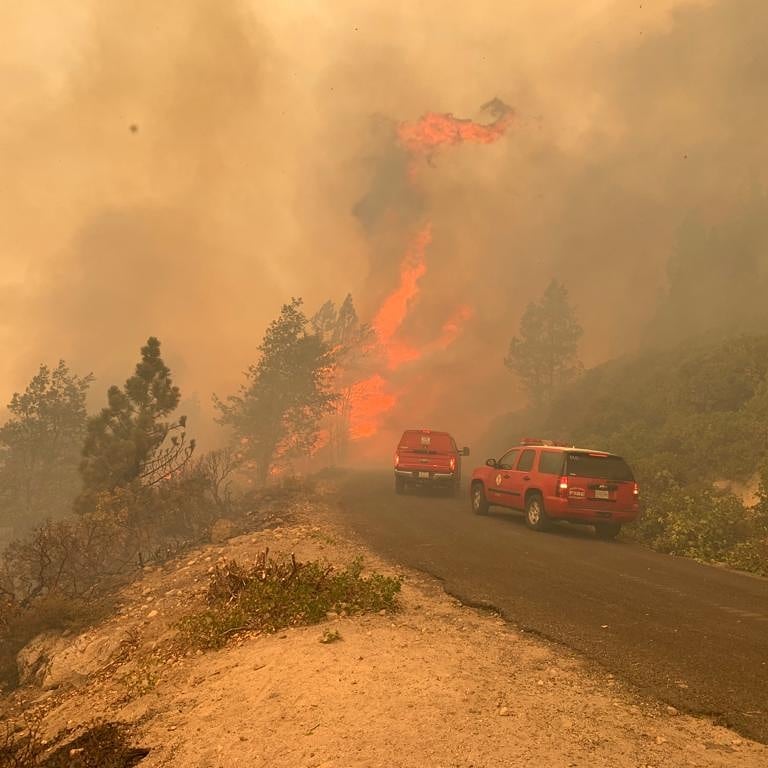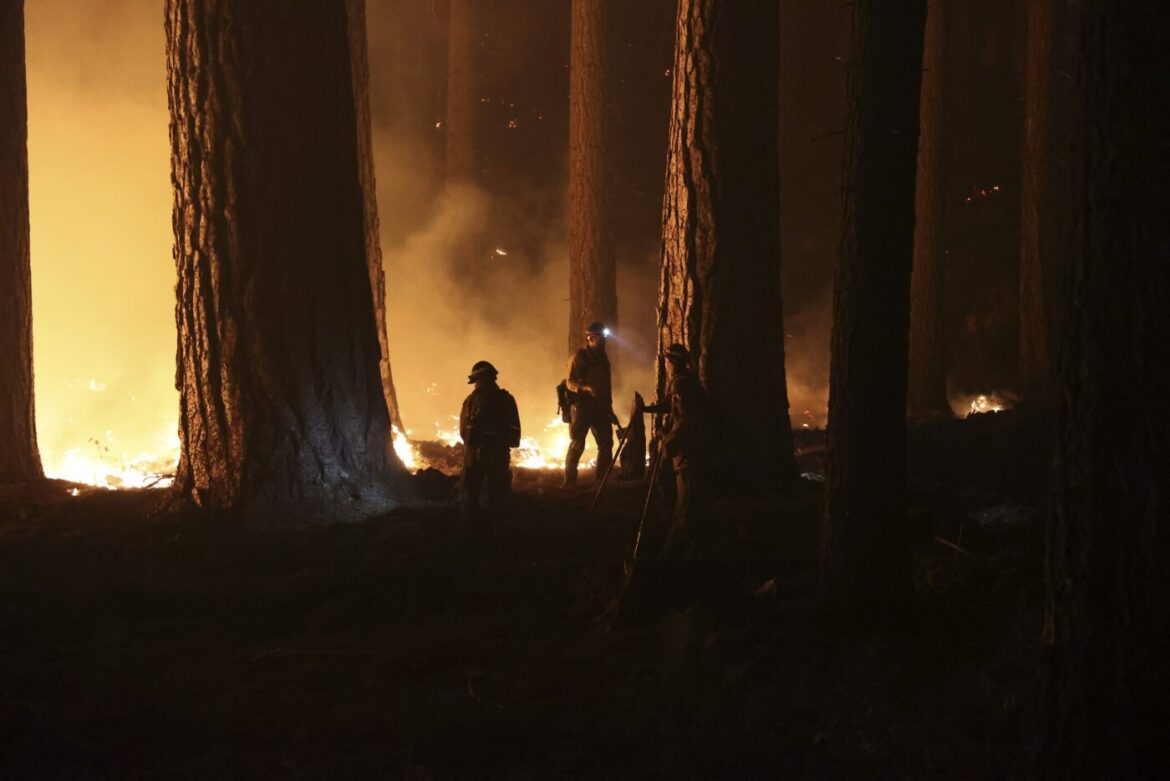California wildfire firefighters could be in for a big pay raise soon through a rare legislative move that would require the state to boost their salaries automatically, effectively cutting the governor’s office out of negotiations over their wages
For years, the California Department of Forestry and Protection – or Cal Fire – has been unable to compete with local departments that offer better salaries and in turn has been losing its members at an escalating pace, union leaders say.
“We now have a world where you can work at Target and In-N-Out and make $22 an hour and our starting firefighter makes $15.56 an hour,” said Cal Fire Local 2881 president Tim Edwards. “Who’s gonna want to put their life on the line in a time where the state really needs firefighters when they can go work somewhere else and make more money?”
Now, after several years of devastating wildfires, state lawmakers are advancing a bill that would lock in automatic pay increases for them. It would compel the state human resources department to calculate wage increases for the 8,000 or so state firefighters every year based on what other 20 local fire departments pay.
The bill would boost the salary for Cal Fire employees to within a 15% range of the top 20 highest-paying fire departments in California.
If the bill becomes law, the firefighter union would become just the second group of California public employees to gain automatic pay raises instead of having to bargain over wage increases with the governor’s office.
The other is the union that represents California Highway Patrol officers. The CHP contract sets officers’ pay on a formula that accounts for wages at other large California police departments. It’s a lucrative perk. Last year, CHP officers received a 6.2% wage increase — the biggest they have seen in 20 years and more than double what Newsom gave to other public employee unions that year.
Lawmakers, including Republicans, say it’s time for Cal Fire to gain the same kind of wage guarantee.
“Cal Fire is one of the greatest public safety organizations, in my opinion, in the world,” said Assemblymember Heath Flora, a Republican from Ripon who sponsored the bill.
“I really want the men and women in this state to be paid properly and for some reason we always felt like they’re overlooked. And I don’t really understand it,” said Flora, a former firefighter.
The bill is moving forward as the Newsom administration bargains with unions representing more than half of the state workforce, some of whom are demanding 30% raises.
The firefighter pay bill passed through the Assembly and is now headed to the Senate appropriations committee with no opposition even as the state faces a projected $32 billion deficit.
Cal Fire itself has not weighed in on the bill. Edwards, the union leader, said the department lost 10% of its firefighters last year.
Cal Fire is the state’s largest fire department. It’s responsible for fighting wildfires, as well as protecting urban areas in several parts of the state.
The intensity of wildfires in California is projected to worsen. The state saw its worst wildfire season on record in 2020, taking a toll on firefighters who spent weeks in the field.

The California Professional Firefighters, an umbrella union that represents some 30,000 firefighters, is lobbying for the pay bill. The union in a written statement to lawmakers said the risks of short staffing compounds the dangers that come with the line of work and “also presents long-term health impacts from extended exposure to toxic smoke with no respiratory protection as well as the negative repercussions for behavioral health from lack of sleep, overwork, and months on end spent away from family.”
The Cal Fire union in its most recent contract attempted to address difficult working conditions by bargaining for a schedule that would give its members a better work-life balance. Cal Fire firefighters usually work four 72-hour shifts each month. Local fire departments tend to operate on 54-hour shifts.
“If I learned anything in the past decade, it’s that our wildfire season is absolutely out of control. It really never ends,” Flora said.
If the bill passes, Cal Fire Local 2881 would still have to bargain with the governor over issues like discipline and working conditions.
Cal Fire firefighters are paid through a complicated formula that accounts for their scheduled overtime hours. Their hourly wages are as low as minimum wage, but their take-home pay adds up through overtime and other compensation.
The average monthly total compensation for a Cal Fire battalion chief was $29,697, according to a 2020 salary survey. That was about 40.7% below what 20 local fire departments of various sizes paid firefighters at that rank, the survey said.
Lower-ranking firefighters earned $19,288 monthly in total monthly compensation, which was 15.8% below what local departments paid.
Outside of the Legislature, critics of public employee unions characterize the bill as a reckless giveaway to a powerful labor organization.
“Firefighters are already among the best-paid government workers in the state,” said Will Swaim, president of California Policy Center, an advocacy group that is critical of California public employee unions.
“No one else in California gets that deal,” he said.
Michael Genest, the former finance director under Gov. Arnold Schwarzenegger, also called promises of future raised “irresponsible.”
“Governors and legislators always regret having made such promises when our budget goes out of balance,” he wrote in an email. “The wise move is to make decisions about the allocation of state revenues each year and even then to be careful not to spend more on anything than is prudent.”
